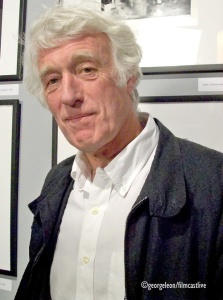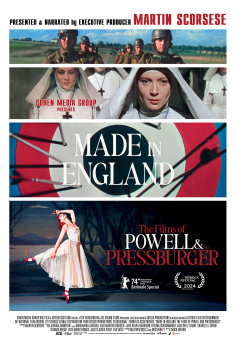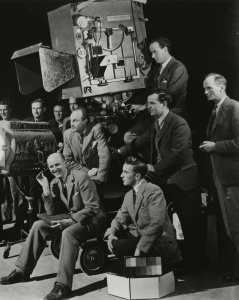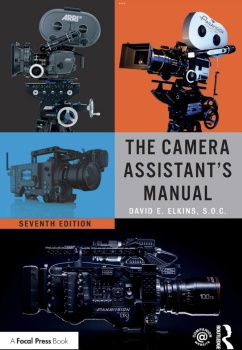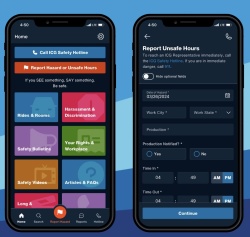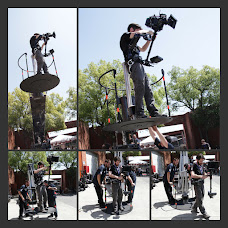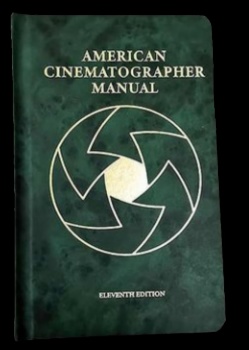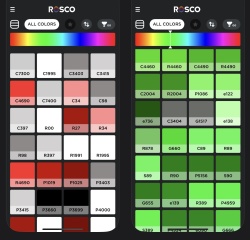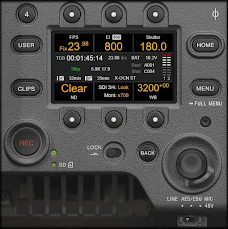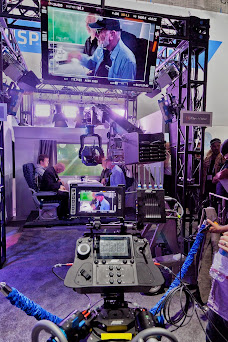 Anthony Dod Mantle aceptance speech:
Anthony Dod Mantle aceptance speech: I want to thank, of course, the Academy for opening this door. There's something that goes hand in hand with that. That's my wife, because she keeps the door open when I come back. She doesn't slam it. And I want to thank her 'cause she's amazing. 'Sanna, you're an amazing lady. She's a mother of two boys, August and Clements, who are probably watching tonight. Now, get to bed! You're not meant to be up on the other side of the ocean. I want to thank my ma and pa, of course, my brother John and my sister Annie. Danny, it starts with you, but there are thousands of people with you and under you. They're all with me tonight. I want to just thank you so much. Goodbye.
 Anthony Dod Mantle and Natalie Portman
Anthony Dod Mantle and Natalie PortmanBACKSTAGE AT THE OSCARS
Anthony: I haven't done this before, it will be funny.
Question: Congratulations to you. I am very curious if you can speak a little bit about your experience with Dogme filmmaking and how that's affected your film making for Slumdog?
Anthony: Absolutely, not at all. I mean, with Dogme I think Dogme was wonderful. I think Dogme was more attached to my background as a documentarist, really. You know, it's look at light, not make the light but see the light and hunt the light. You have to find and see what's going on in a very short period of time and grab it. I know which tree you're barking up with a certain amount of available light shooting and with Slumdog Millionaire that's true.
Maybe my background, which I think is more from documentary from Dogme, is probably more relevant. Dogme was like five weeks with Thomas Vinterberg, five weeks with Soren Kragh Jacobsen, and five or six weeks with my dear friend Harmony Korine. I spent like 10 years in documentaries so, I guess that's the balance.
Question: Congratulations. And this has been quite a ride for you here. And just talk a little about how this all started for you and how you prepared for that?
Anthony: Preparing for the film, I kind of flew in it very fast. Danny and I were going to make another film actually in America, and it crashed because of financing and kind of expecting competition with Benjamin Button so we backed off and had to move very quickly to Mumbai. And even though we had very little time to prepare for Danny's film, it helped that I have known him for five or ten years and made five films with them. He then ate away of my three weeks of my five weeks of preproduction and destroyed it completely. It was shoot there. This was shoot shoot shoot.
So, I really didn't have much time; I had to get to the state of the art digital equipment in order to work as quick as possible. That was my main brief, was to learn how to run with the boys. Learn how to run with them at a certain height, at a certain pace, in a certain, intimate way, and that was a pretty difficult thing, actually, in the slums of Mumbai. That's w here I spent most of my time into shooting. I was improvising, finalizing, and repairing damaged equipment three or four weeks into the principal shooting. I hope that's the answer.
Question: And I was thinking that this film reminded me so much of a mini documentary. Very good ones that we have seen over the past few years, but in shooting the scenes, especially in the slums how much of that was set up? I am glad you said about running with the boys, because that was kind of my question. How did you achieve that and how much of the broad scenes were set up or did you just do it cinema verite style.
Anthony: When I work with Danny, it's the same thing as in the studio. You just walk into a space the day before or week before or in the morning, and you look at the space and my job and my vocation is trying to explore the space, you know, with him in mind, with the story in mind, but use the space, not necessarily the right way because there's no right way, but the way we feel we should do it together intuitively. And whether it's a stage, or a sound stage on a block in Fox, or whether it's a location or a small room or great space the same thing applies, you just have to snoop around like an animal, and smell and sniff and work it out. And then the cameras start coming out, and when I am preparing maybe an A or B camera and talking to Danny about the dialog or what is the main intent of the scene, I'll be thinking about placing extra kind of cocktail things around about if I can do it.
And I'm at the same time, and it's very organic, and it's intuitive, as much as it can be. It's very difficult these days with films, because the production value is such that things get harder and harder and wear on the budget. I think things get more and more pressure, but I try to keep a certain mental and physical extra space available for me and my directors to think twice or three times on set. And that's how we work.
The slums were obviously extraordinary because we're encroaching on people's lives. At the same time we have got carte blanche and the green light to go in there and basically destroy their daily lives. You open a cupboard and a family of 15 fall out. And that's not something you can control. And even if they say they aren't going to be there, the next five or ten minutes they will be there, and there will be dogs and all sorts of things coming at you. That's how it is.
Thanks so much. And congratulations.
Anthony: Thank you.










